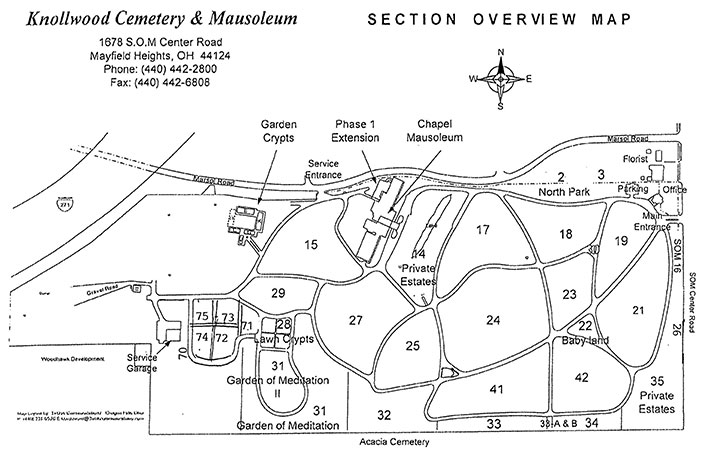Edith Anisfield Wolf
Birth Name:
Edith Karolyn Anisfield Wolf
Birth Date:
August 2, 1889
Birth Place:
Cleveland, Ohio
Death Date:
January 23, 1963
Place of Death:
Cleveland, Ohio
Age:
73
Cause of Death:
Unknown
Cemetery Name:
Knollwood Cemetery
Claim to Fame:
Writers and Poets
Edith Anisfield Wolf was an American poet and philanthropist from Cleveland, Ohio who founded and endowed an award in 1935 for non-fiction books that advance racial understanding. In 1941 the foundation expanded the award, now called the Anisfield-Wolf Book Awards, to include fiction and poetry. Notable recipients during Wolf’s lifetime included Zora Neale Hurston, Langston Hughes, and Martin Luther King Jr. Notable recipients after her death have included Alex Haley, Gwendolyn Brooks, Toni Morrison, Derek Walcott, Wole Soyinka, Ralph Ellison, Quincy Jones and Oprah Winfrey. The awards, $1,000 per recipient in the 1930s, now amount to $10,000 each.
Cemetery Information:
Final Resting Place:
Knollwood Cemetery
1678 SOM Center Road
Mayfield Heights, Ohio, 44124
USA
North America
Map:

Grave Location:
Mausoleum, North Wing, Chapel Floor, Crypt 321Grave Location Description
As you enter walk towards the front and turn right and walk down the hallway ten or so crypts. Look to your right on the top row to find the final resting place of poet and philanthropist Edith Wolf.
Grave Location GPS
41.51379775, -81.44404546Photos:
[+]
[+]
[+]
[+]
[+]
[+]
[+]
[+]
FAQ's
Edith Anisfield Wolf was born on August 2, 1889.
Edith Anisfield Wolf was born in Cleveland, Ohio.
Edith Anisfield Wolf died on January 23, 1963.
Edith Anisfield Wolf died in Cleveland, Ohio.
Edith Anisfield Wolf was 73.
The cause of death was Unknown.
Edith Anisfield Wolf's grave is in Knollwood Cemetery
Read More About Edith Anisfield Wolf:
Videos Featuring Edith Anisfield Wolf:
See More:
Back to Top

